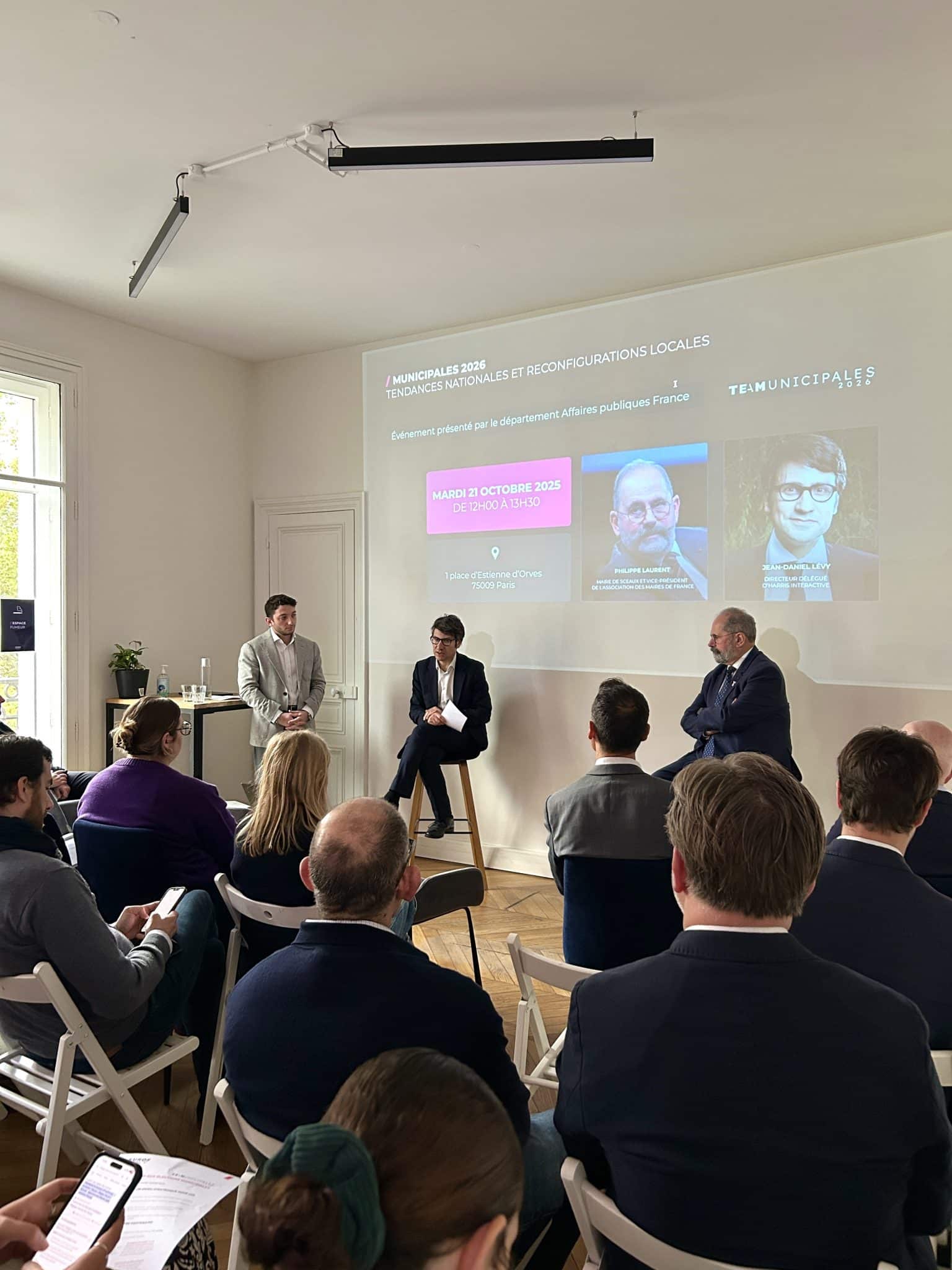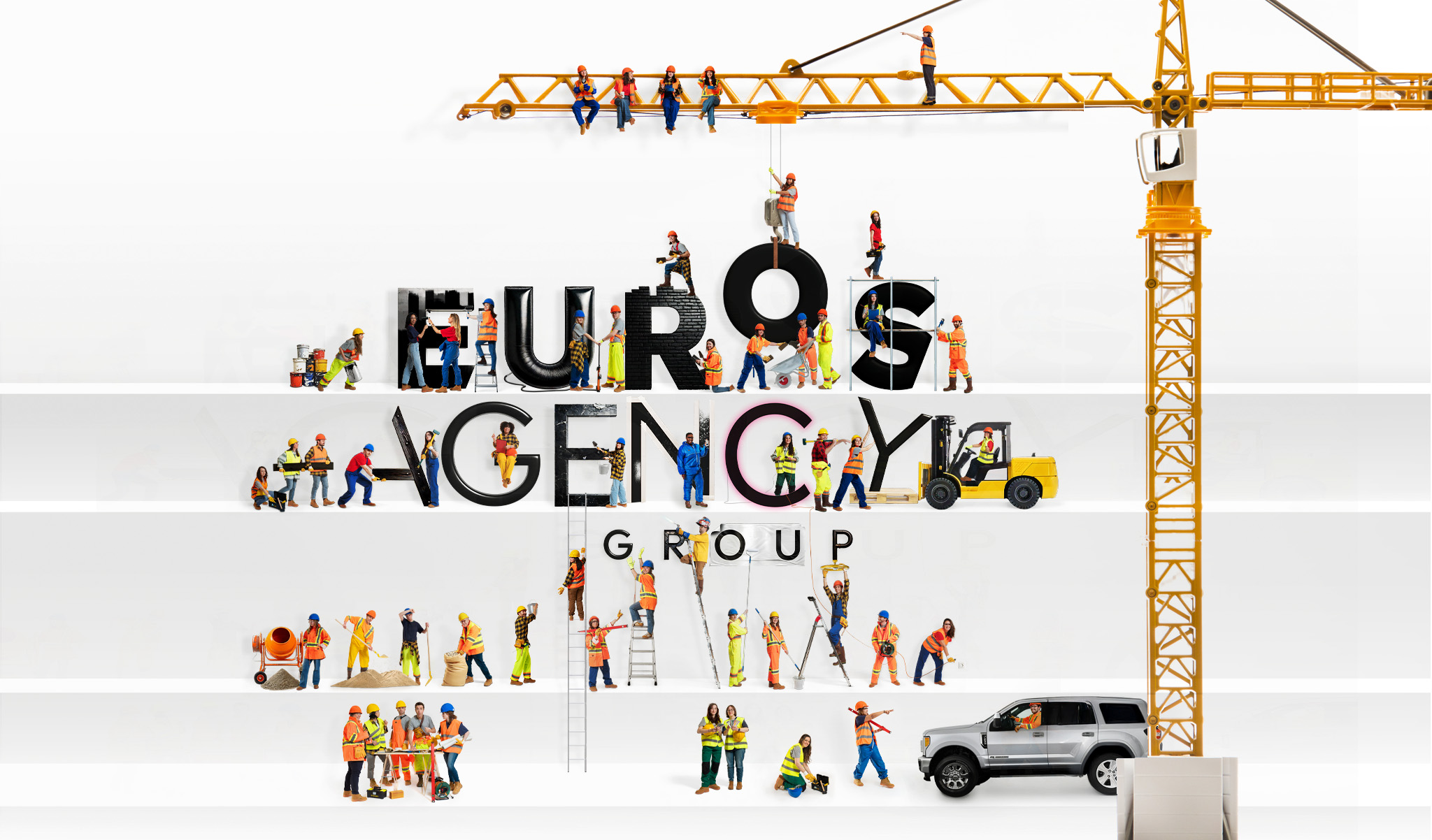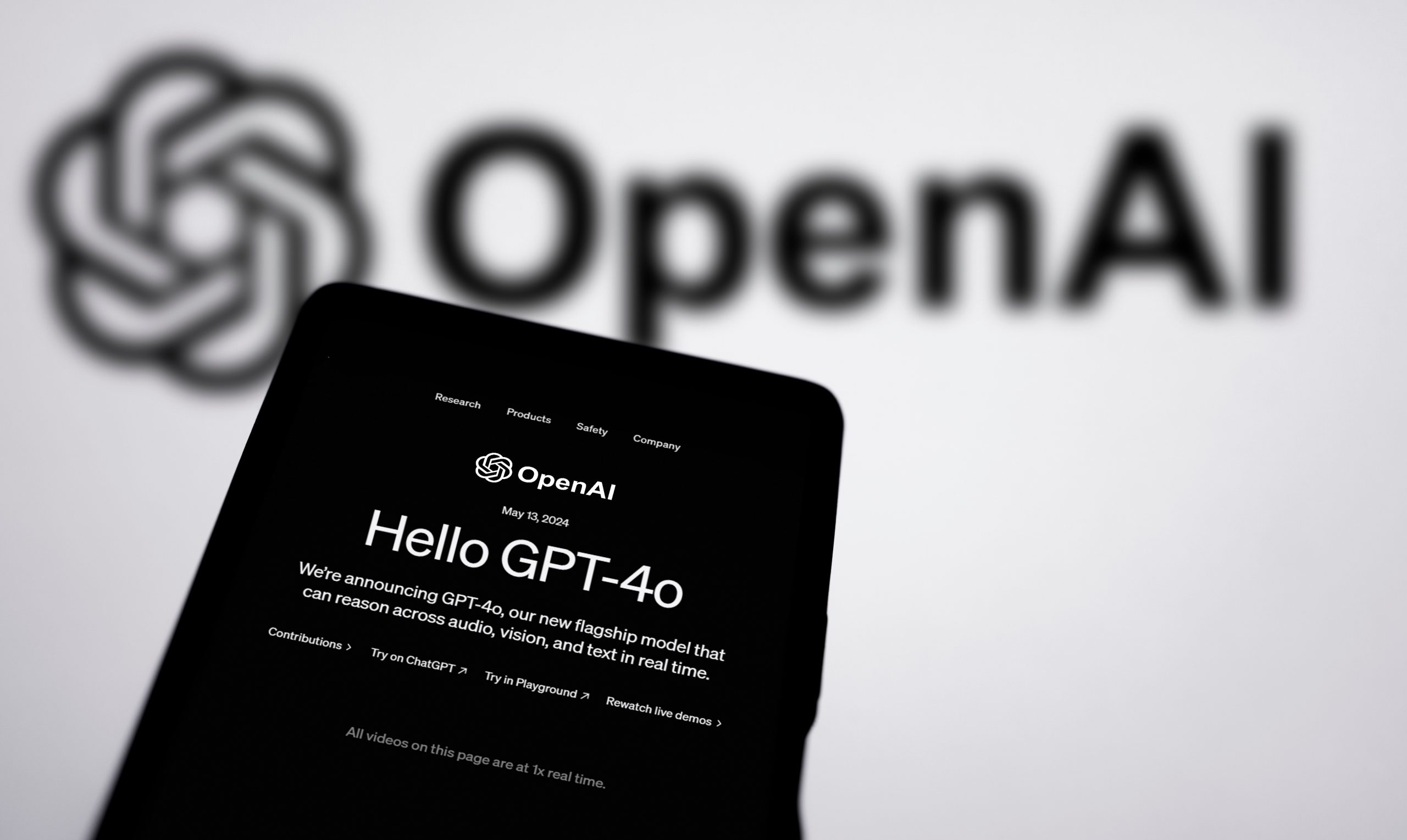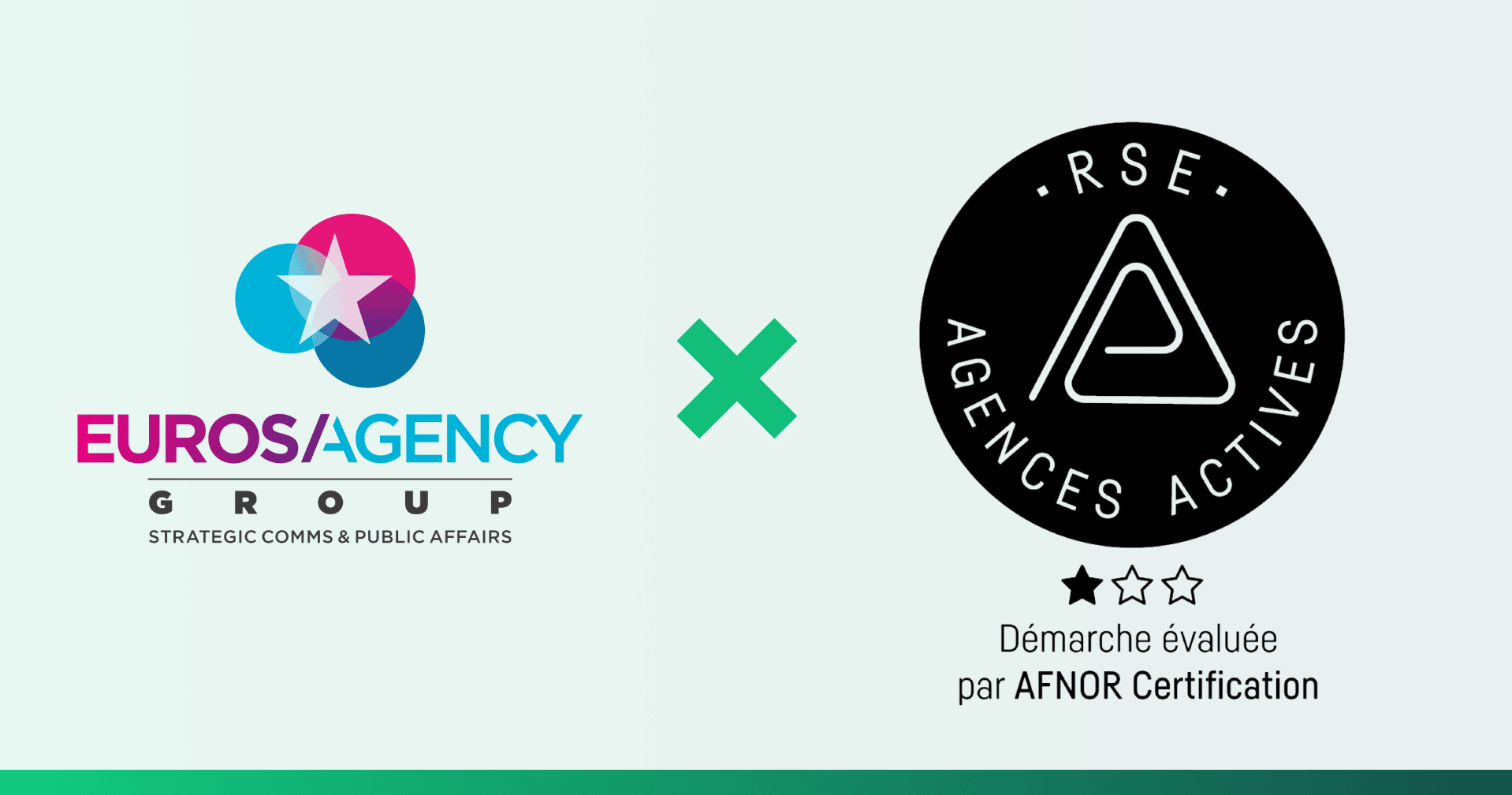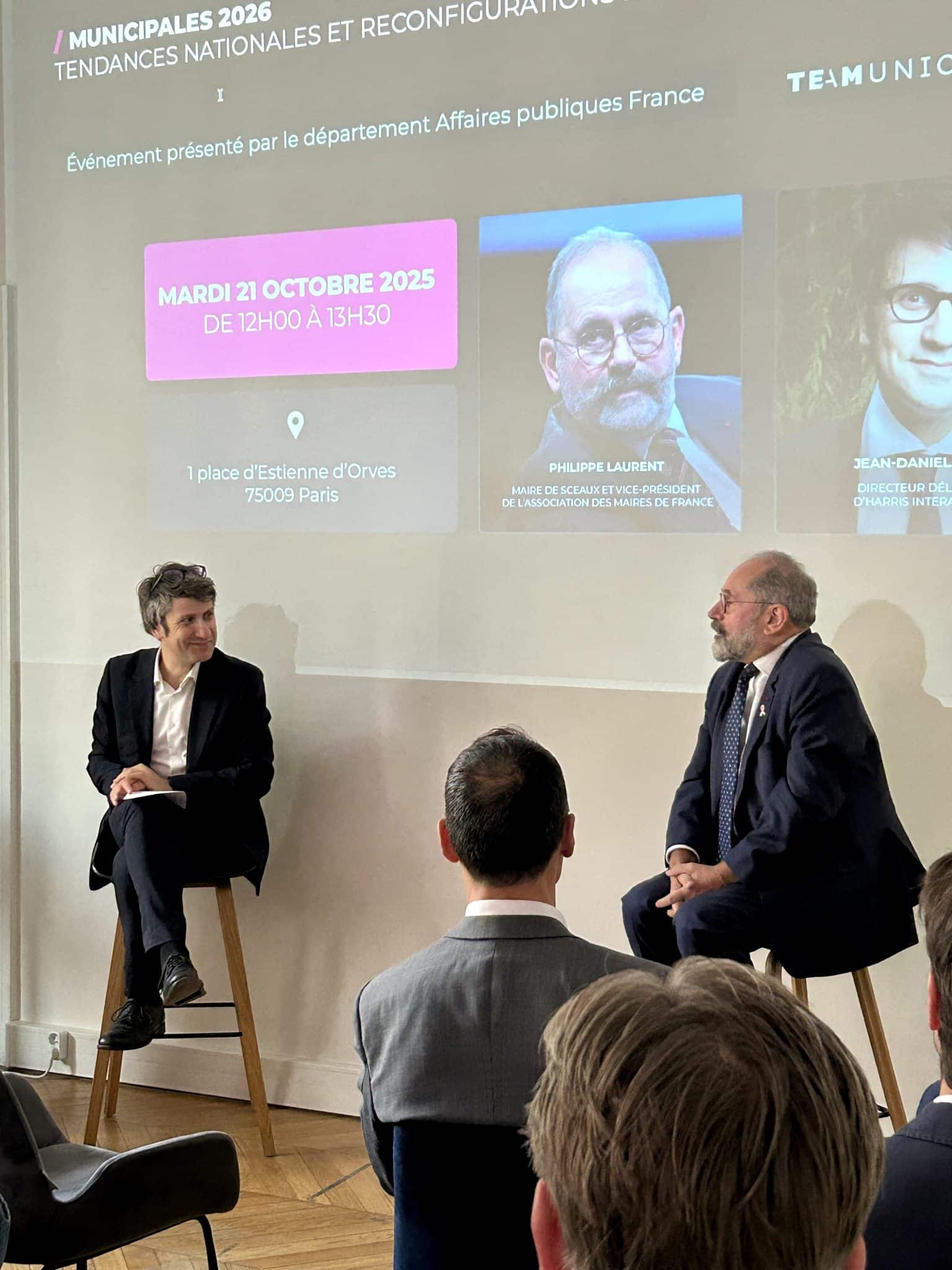
While media and political attention is focused on short-term budget debates, local electoral dynamics are not on pause. With less than two years until the election, political actors are already sharpening their strategies for what promise to be decisive elections. It is within this context that the French Public Affairs Department of Euros / Agency Group has initiated an in-depth reflection by launching its Team Municipales 2026, a working group dedicated to analyzing and anticipating this major election.
Initial trends for 2026
To inaugurate this series of meetings, the Paris office brought together leading experts for a forward-looking discussion. Introduced by Donatienne Brillant, Director of the French Public Affairs Department, and moderated by Simon Finkel, Account Director, the discussions benefited from the cross-analyses of Jean-Daniel Lévy, Deputy Managing Director of Harris Interactive, and Philippe Laurent, Mayor of Sceaux and Vice-President of the Association of French Mayors (AMF).
From their complementary perspectives, three major trends are emerging for the upcoming election :
- Political strategies in full transformation The 2026 municipal elections will not be a simple sum of local elections; they will take place within a context of significant restructuring of the national political landscape. The analysis highlighted the growing tension between party-based logics, where national parties will seek to “count their mayors” and purely local establishment strategies, often disconnected from traditional labels. For incumbent mayors, the challenge will be to defend a local record while navigating an unstable national political environment.
- Health and Security: The new citizen priorities Recent crises (health, inflation, security) have profoundly altered citizens’ priorities. While quality of life and cleanliness remain fundamental, Jean-Daniel Lévy emphasized the dramatic rise of health (access to care, health centers) and security issues. These themes, formerly the preserve of the state, are now at the heart of municipal debates and the expectations placed on elected officials, compelling them to invest in new areas of competence.
- The reinforced centrality of the Mayor In a climate of distrust towards many institutions, the mayor remains the most popular and sought-after political figure. As Philippe Laurent pointed out, the mayor is the “pivot” of local public action, the first point of contact for all daily concerns. This central role confers immense responsibility but also considerable influence over decisions that directly impact the economic and social life of the territory.
Adapting Public Affairs strategies today
These transformations raise an essential question for economic stakeholders: how to adapt public affairs strategies now to anticipate these local reconfigurations and ensure relevant influence tomorrow ?
At Euros / Agency Group, our conviction is clear : anticipation is the key to success. Understanding territorial dynamics, deciphering emerging programs, and identifying future decision-makers well before the election deadline is crucial. This is precisely the work our Team Municipales 2026 is conducting. We support our clients in building relationships of trust and reciprocity with elected officials, enabling economic actors to establish a lasting presence in the territories and effectively influence public decisions that concern them.
